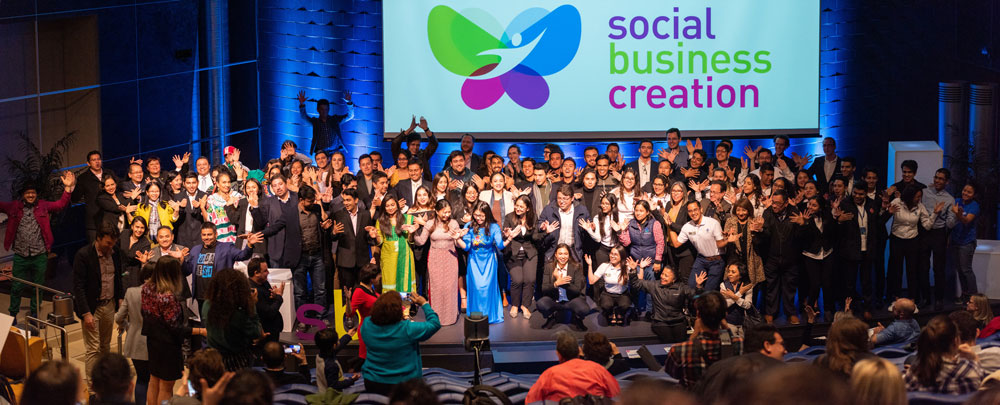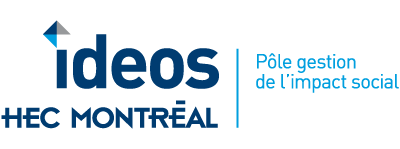
The grand finale of the 4th edition of the Social Business Creation international competition, organized by the IDEOS Hub in partnership with the Yunus Centre, was held at HEC Montréal on Monday, September 30. Over 200 people came to attend the pitches by the finalists in the seven-month long competition.
Turbodega, a team of McGill University students, won first place. Turbodega is a social enterprise project that has developed management software to help small grocers in emerging countries. With the help of real-time sales data, the software reduces the grocers’ costs and gives them better access to investment funds and credits.
Second place went to Mom&Me Care, a team from the Centre Franco-Vietnamien de Formation à la Gestion (CFVG), a governmental Franco-Vietnamese co-operative program. This social enterprise offers integrated support services for women throughout their child-bearing years.
Lastly, MWorks team from the University of Monterrey, Mexico, won third place for their project to build sustainable housing from recycled plastic.
All three teams won a tuition waiver to attend the Summer School on Management of Creativity run by MOSAIC – HEC Montréal, worth $8,500. The first- and second-place teams also received cash prizes: $15,000 for Turbodega and $7,000 for Mom&Me Care. In addition, each of the top five teams in the second round took home a $2,000 Social Business Concept Award.
This year, 98 teams totalling 343 students from 15 countries took part in the competition. The teams were shown how to create a social entrepreneurial project by partnering with entrepreneurs, professionals, the project’s intended beneficiaries, and other stakeholders. The goal of the Social Business Creation program is to teach participants how to use market mechanisms to solve social challenges. Each social enterprise project is designed to create social impacts and at the same time be profitable in doing so.
All the teams in the competition, launched at HEC Montréal in 2016, received training and personalized coaching from a team of coaches and judges, comprised of HEC Montréal faculty and staff members as well as businesspeople in its global network.
According to the founder of the Yunus Centre, Muhammad Yunus (2006 Nobel Peace Prize laureate), social enterprises are business models that prioritize making a positive social impact. In a social enterprise, investors/owners may gradually recover their investment, but may not take any dividends above that amount. The goal of the investment is to help the enterprise reach one or more social objectives, and the investors do not expect to make any personal profit.
